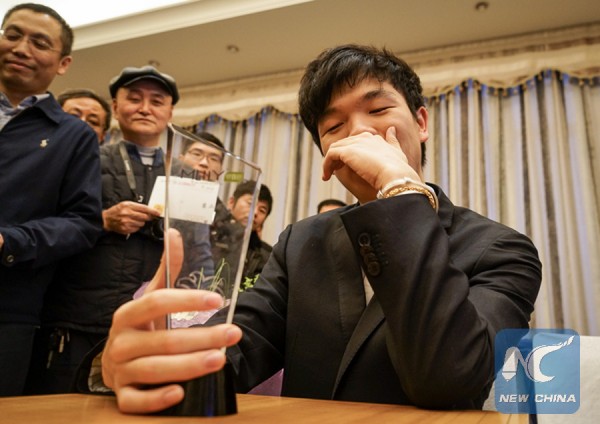China’s Go grandmaster Ke Jie on Tuesday doused claims of a supposed match with Google’s AI program AlphaGo, whose developer previously denied that any match was scheduled.
"I know exactly as much as the media have reported," Ke told the state-owned Global Times newspaper on Tuesday.
Demis Hassabis, cofounder and chief executive of Google Deepmind, the artificial intelligence company that developed AlphaGo, posted on his Twitter account on Monday that "contrary to Internet rumors, we've not decided yet what to do next with #AlphaGo, once we have, there will be an official announcement here."
Yang Jun'an, president of the Chinese Chess Association, announced at the press conference for the World Amateur Go Championship in Wuxi, Jiangsu Province, on Saturday that Ke will take part in the "ultimate Go match between human and AI" with AlphaGo within the year, according to the Xinhua News Agency.
The match between Ke, the world's top-ranked Go player, and AlphaGo was greenlit by both the Chinese Go Association and Google, Yang said.
However, Ke told the Global Times in an interview on Sunday that he was not aware of any planned match.
AlphaGo made international headlines in March when it defeated South Korean Go prodigy Lee Se-dol 4-1 in a best-of-five series.
Shortly after the final match, Ke posted on his account on China's Weibo social media site that "even though AlphaGo may have defeated Lee Se-dol, it won't beat me."
Ke, 18, became a professional Go player in 2008 and has been the youngest person in the sport's history to achieve three major international tournament wins following his defeat of Lee in the final of the MLily Cup earlier in January this year.
An ancient Chinese board game with a wide following in east Asian countries, Go involves two contestants moving black and white stones on a square grid with the aim of gaining the most territory.
AlphaGo's win is reminiscent of the 1997 victory of the IBM-developed supercomputer Deep Blue against world chess champion Garry Kasparov.


